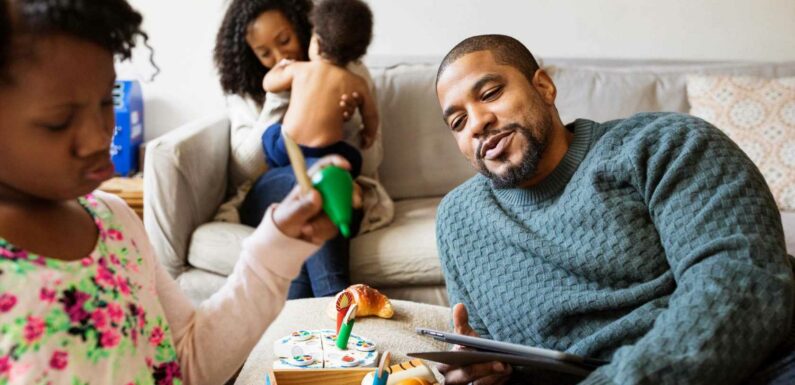
THOUSANDS of parents have just weeks left to check their child benefit entitlement or risk a £100 fine and tax charge.
Families with certain earnings need to declare this with the HMRC if they're also receiving child benefit to avoid hefty fines.
This is because families have to pay high income child benefit charge if you or your partner has an individual income over £50,000.
To work out if your income is over the £50,000 threshold, you’ll need to work out your "adjusted net income".
Your adjusted net income is your total taxable income before any allowances and this includes interest from savings and dividends.
You can use the child benefit tax calculator on Gov.UK to get an estimate of your adjusted net income.
READ MORE IN MONEY
14 major changes set to impact your finances in 2023 – avoid losing cash
Map reveals where you’re most likely to have anti-social neighbours
To pay the high income child benefit charge and avoid a £100 fine, you must fill in a self-assessment tax return by January 31.
Some parents continue to claim child benefit and pay the charge because it helps them to build up national insurance credits, which you need to qualify for the state pension.
But if you fail to let HMRC know and don't pay the tax charge by January 31, they can fine you – on top of what you owe.
If you fail to file a self-assessment tax return you could be fined up to 30% of what you owe by HMRC.
Most read in Money
Surprise change to energy bills from January 1 – is your supplier hiking prices?
Save £50 off Ninja Foodi MAX Dual Air Fryer in Argos Boxing Day sale
Full list supermarkets & shops slashing price of Quality Street & Cadbury chocs
Thousands can apply for vouchers worth up to £140 to help with bills within days
A late filing penalty of £100 also applies and if it's more than three months late interest
If it's longer than that interest starts to be charged on outstanding balances.
How do I fill out the self-assessment tax return?
Before you can complete and submit your tax return, you'll need to have a unique taxpayer reference (UTR) and activation code from HMRC.
This can take a while to receive, so if it's the first time you're completing a self-assessment, make sure you register online as soon as possible.
To sign in or register visit the "Self Assessment tax return" section of HMRC's website.
If you've already signed up for self-assessment, you can find your UTR on relevant letters and emails from HMRC.
HMRC accepts your payment on the date you make it, not the date it reaches its account – including on weekends.
If you need to change your tax return after you've filed it, you can do so within 12 months of the original deadline or you can write to HMRC for any changes after that.
Filling in your tax return can seem daunting, but with our step-by-step guide you'll have it sorted in no time.
What is the high income child benefit charge?
Child benefit is given to families bringing up a child under 16 or under 20 if they're in "approved" education or training.
There's no limit to how many children you can claim for.
The benefit is worth £21.80 a week for your eldest or only child, then £14.45 per child for any additional children.
However, if you or your partner individually earn over £50,000 you have to start paying back some of your child benefit.
If your income is between £50,000 and £60,000 the charge is 1% of your child benefit for every £100 between those two figures.
If your income goes over £60,000 all your child benefit is taken away.
This means couples can have a combined income of up to £100,000 without having their child benefit deducted.
The benefit amount can be passed on to family members who look after your children.
But that parent has to be claiming child benefit already.
If your income is over the threshold, you can choose to still get payments and pay any tax charges to HMRC at the end of each tax year.
Or, you can opt-out of getting payments and not pay the tax charge.
Parents have to notify HMRC if they are liable for the charge and they must file a self-assessment tax return to pay it.
Charity Turn2Us suggests using the government's child benefit tax calculator to see how you could be affected by the high income tax charge.
Source: Read Full Article






